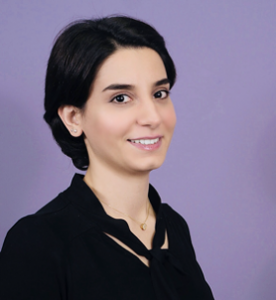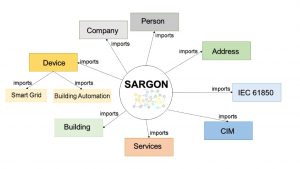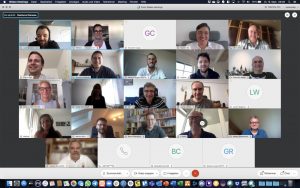by Gianluca Dianese | Oct 7, 2020 | Uncategorized

The recording and presentation from the first virtual MeetUp of IDEASFORUM, organised with the support of the Team of Prof Monti at the University of Aachen RWTH are now available from the links below.
Presentation Smart Energy Competence Center20201005
Video
by Gianluca Dianese | Sep 30, 2020 | Uncategorized

It is with pride that we announce IDEASFORUM has become part of the family of the FIWARE iHubs.
“This achievement strengthens our determination to work closer to the FIWARE Community in bridging the differences and filling the gaps which have prevented digitalisation to reach all parts of society.”.
by Gianluca Dianese | Sep 26, 2020 | Uncategorized

The IDEASFORUM Team happy to share with you this insightful piece from Joao Frade, who is coordinating efforts of the CEF Digital team.
You can reach Joao’s article from this link.
by Gianluca Dianese | Sep 24, 2020 | Uncategorized

The world of IoT is a scattered landscape characterized by a plethora of standards, platforms and technologies, often siloed into different vertical domains, very often unable to communicate to each other.
The Energy Industry cannot afford to continue being fragmented and it is becoming evident at different levels of the value chain that a protocol- independent semantic layer that can serve as interoperability enabler among different categories of smart devices (which could be co-existing in a specific industry domain, or even operate across different domains) coming from different manufacturers. To achieve this level of interoperability, in 2015 industry and academia decided to work together and drafted the SAREF ontology, with the objective to assure data interoperability, enabling communication between IoT devices using different protocols and standards. A number of industrial players operating in different sectors, after testing and assessing the potential of the ontology, expressed their interest to extend SAREF into other domains, in order to fill the gaps in the semantics not yet covered by their communication protocols. As a result of these initiatives, the framework of the SARGON (Smart eneRGy dOmain oNtology) ontology was drafted and used to extend SAREF for achieving better monitoring and controlling in applications to digitize Smart Grids and implement Building Automation projects. The SARGON ontology is based on several existing industry standards and the work of IoT standardization initiatives, as well as on real use cases. It includes classes, properties and instances specifically created to cover the various categories of devices possibly deployed in Smart Energy infrastructure.

The image above gives a possible picture of the complexity for such a fragmented information domain and all of its components are gathered in the SARGON ontology, which aggregates all these cross-cut domain-specific information.
In addition to this, one of the other major advantages of the SARGON ontology is its modularity, which allows further development of new elements necessary to fill possible gaps and supports any additional development of missing information models, allowing properties and relationships to receive better descriptions, adding additional levels of properties and relationships.
IDEASFORUM is hosting Malileh Haghgoo on October 21st in a Tech-pill focused on introducing the SARGON Ontology to developers of smart energy applications.
Please register here
To access IDEASFORUM Eventbrite page, please click here
by Gianluca Dianese | Sep 16, 2020 | Uncategorized
Yesterday, Sep 15th, the promoters of the IDEASFORUM Innovation Hub met in a virtual event hosted by Umagine where members of 18 different organisations discussed on the future goals of the initiatives.
Ulrich Ahle, CEO of the FIWARE Foundation and other members of the Board of Directors joined the event.
The various teams of experts on competence areas will meet in the next few weeks for their internal kick-offs, while the first of the IDEASFORUM public virtual events is scheduled for October 5th, with a presentation on the use of FIWARE generic enablers in smart energy applications (please register here)
.
by Gianluca Dianese | Sep 15, 2020 | Uncategorized
To exploit fully the potential of mobile proximity contact tracing and warning apps to break the chain of coronavirus infections and save lives, the Commission is setting up an interoperability gateway service linking national apps across the EU. Today, an important milestone has been reached as a group of Member States starts testing the infrastructure. The Commission has kicked off test runs between the backend servers of the official apps from the Czech Republic, Denmark, Germany, Ireland, Italy and Latvia, and a newly established gateway server.
Read more







Recent Comments